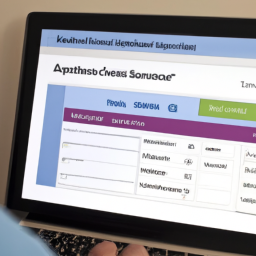If you're looking to grow your savings, it's important to choose the right type of account. One factor that can make a significant difference in your earnings is whether the account earns simple interest or compound interest. And if the account compounds interest daily, you could see even greater returns.
Compound interest is when the interest you earn on a balance in a savings or investing account is reinvested, earning you more interest. Essentially, you are earning interest on interest as well as on your investments. This can lead to exponential growth in your account over time.
On the other hand, simple interest only earns interest on the principal amount. For example, if you have $1,000 in a savings account with a simple interest rate of 2%, you would earn $20 in interest over one year. However, if you have $1,000 in a savings account with compound interest that compounds daily at a rate of 2%, you would earn $20.19 in interest over one year. The difference may seem small, but it can add up over time.
One type of account that offers daily compounding interest is a certificate of deposit (CD). CDs are a type of savings account that typically offer higher interest rates in exchange for locking up your funds for a set period of time. Use the CD calculator to see the total interest you can get on a certificate of deposit. Like savings accounts, CDs earn interest and are FDIC-insured, meaning your money is safe up to a certain amount.
The best CD rates for April 2023 can help you earn money, as the Fed's decision to raise interest rates leads to higher yields from deposit accounts. Keep in mind that CDs typically have early withdrawal penalties if you need to access your money before the term is up.
But it's not just CDs that offer daily compounding interest. Many online savings accounts and high-yield savings accounts also offer daily compounding. These accounts often have lower fees and minimum balance requirements than traditional banks.
With so many types of savings accounts out there, choosing where to put your money can seem like a big decision. One factor that can help you determine which account is right for you is the interest rate and how often it compounds. If you have a choice between two accounts with the same interest rate, but one compounds daily and the other compounds monthly, the daily compounding account will earn you more money over time.
Calculating compound interest looks complicated, but it's actually as simple as plugging some numbers into the right formula. You'll need to know the principal balance, the interest rate, and the number of compounding periods per year. There are online calculators that can do the math for you, or you can use a spreadsheet to track your earnings over time.
It's also important to consider how much you can afford to contribute to your savings on a regular basis. Try your calculations both with and without a monthly contribution – say, $5 to $200, depending on what you can afford. This savings habit can help you reach your financial goals faster.
Between compounding interest on a daily or monthly basis, daily compounding gives a higher yield – although the difference could be small. But over time, those small differences can add up to big savings. By choosing a savings account that compounds interest daily, you can maximize your earnings and reach your financial goals faster.
